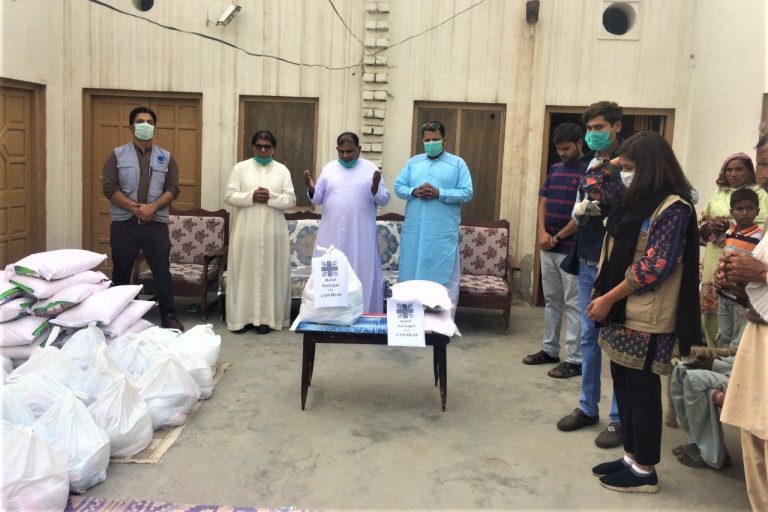PAKISTAN: Panic as food crisis deepens

Families in covid-hit Pakistan are routinely going without meals and are becoming increasingly “scared” about not getting enough to eat, according to a bishop who has warned that desperate people could turn to violence.
Bishop Indrias Rehmat of Faisalabad said long-term job losses – affecting both daily wage earners and white-collar workers, crop failures, and sporadic reports of Christians being denied handouts from NGOs means that people are going without food.
In an interview with Aid to the Church in Need (ACN), the bishop said that the help of the Catholic charity and other organisations had proved critical in staving off starvation.
“Please convey our thanks to your benefactors for what they have done to help us.”
But, stressing worsening economic crisis, he said: “People are scared. There are people who are having to go without meals and what they do eat is often not a proper meal.”
The bishop warned of social disturbance, saying: “When basic necessities are denied, people snatch and steal. As and when the lockdown is lifted here, there is the risk of more criminal behaviour.”
He said: “We have had reports – some on social media – about NGOs only willing to support their own community because of scarcity of resources. This is not good.
“We have asked people to come to us but the problem is that we do not have enough resources.
“What money our parishes had is no longer there. The collections have dropped because so many people are unable to come to church because of covid.”
Aneel Mushtaq, who is overseeing emergency aid relief in Faisalabad diocese, described how he had met some families who had gone days without a meal and added that sometimes he has had to hide from desperate people intent on badgering him for food hand-outs.
“The situation is very worrying for many people. We are doing what we can but it is not enough to meet people’s needs.”
Covid deaths in Pakistan stand at more than 6,150, with nearly 290,000 cases confirmed.
Bishop Rehmat said the infection rate “could be” much higher as testing was not as widespread as many had hoped.
